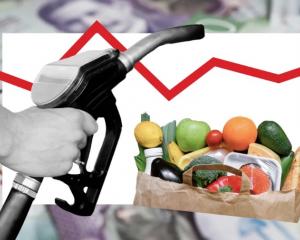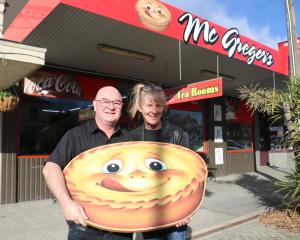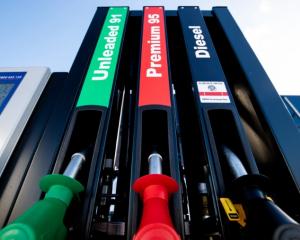
To a backdrop of higher mortgage interest costs, inflation and record fuel and food increases for consumers, The Warehouse yesterday booked a 21% decline in after-tax profit, from $114.8 million last year to $90.7 million for the year to July.
However, the result was slightly better than the outer- most profit guidance of $88 million, forecast three months ago.
The Warehouse's annual dividend was increased 3.5c per share to 21c and subsequently its share price responded positively to the announcement, rising 4.36% to $3.35, ABN Amro Craigs broker Peter McIntyre said.
"It appears the dividend [increase] has held the share price up," Mr McIntyre said.
Retail trade data for July, released yesterday, gave a trading snapshot which, according to ASB chief economist Nick Tuffley, again confirmed the financial strain consumers face, reflected in core retail spending posting a 0.2% decline.
"Rising cost of necessities such as food, fuel and shelter, has left little extra money for discretionary purchases. Consumers are making sacrifices where they can, which July's retail numbers confirmed," Mr Tuffley said in a statement yesterday.
Spending at supermarkets bore the brunt of the fall in spending, down 2% during July.
"Supermarket spending has been trending down for a number of months as consumers have switched to cheaper brand options," he said.
Warehouse chairman Keith Smith said, "The result, whilst below last year, needs to be viewed in light of the slowdown in economic activity and the financial pressures being brought to bear on New Zealand households, the impact of which has been felt by all retailers."
Chief executive Ian Morrice said the result reflected the "very difficult trading environment", especially during the latter part of the third and fourth quarters.
Reserve Bank governor Alan Bollard, who surprisingly slashed the interest-driving official cash rate 0.5% to 7.5% on Thursday to promote some consumer spending, said he expected more economic contraction during the remainder of the year.
Mr Morrice said that uncertainty was likely to be a feature of the New Zealand economy for some time and that he expected the retail environment to remain subdued over the next 12 months.
"In the coming year, The Warehouse would be focusing on driving home its core value proposition and on delivering productivity improvements in all areas of the business," he said.
Warehouse revenue for the year was down 1.5% from $1.76 billion to to $1.73 billion following a "clear shift in consumer sentiment", which placed significant pressure on retail sales, with margins coming under further pressure as retailers sought to clear seasonal inventories, Mr Morrice said.
Mr McIntyre said Warehouse sales, and the subsequent 1.5% decline in revenue, reflected that the sales were made at the expense of the contracting profit margins.
The Warehouse had been the subject of separate takeover offers by New Zealand co-operative Foodstuffs and Australia's Woolworths, the latter yet to appeal a Court of Appeal ruling.
Mr McIntyre said if there was no more corporate takeover activity, as a "maturing" company The Warehouse would be looked on as a dividend yield stock by investors, if it continued to deliver dividends during tough times.












